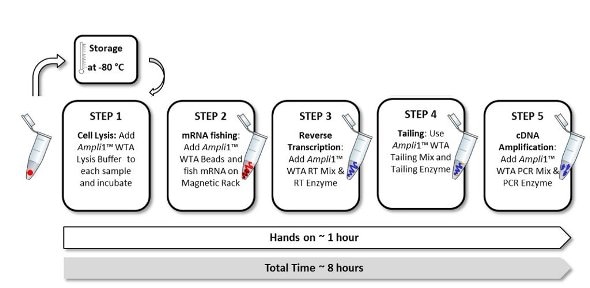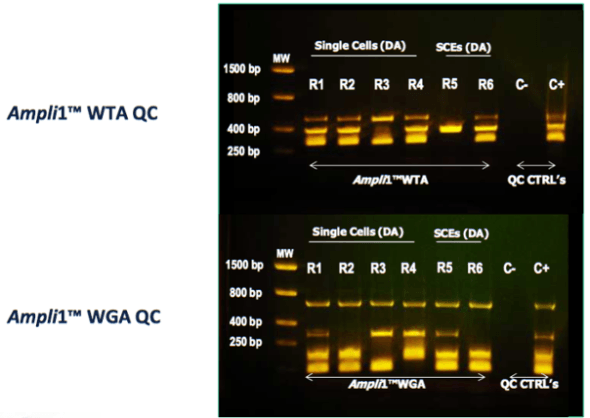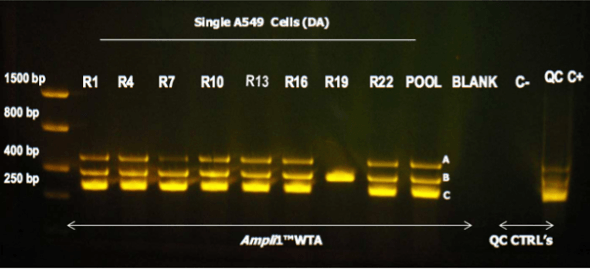Single-Cell Whole Transcriptome Amplification
Now you can analyze the transcriptomes of single cells. Several well-established methods can be used to isolate single cells, including DEPArray™, FACS, or other similar methods.
The Ampli1™ WTA Kit only requires a single cell to produce an unbiased, high quality transcriptome library for analysis by RNA-Seq, microarray hybridization, and other downstream methods.
Based on a peer reviewed method [1], the Ampli1™ WTA Kit overcomes 3’ bias with a specific reverse transcription strategy that produces polyG-flanked cDNA for efficient, unbiased amplification with a single primer. The flexible Ampli1™ WTA Kit protocol requires just one hour of hands-on time, and the cell lysate produced is stable at -80 ºC, so you can store your samples overnight, or, queue up replicates for batchwise amplification:

Amplify the Transcriptome and the Genome of the Same Single Cell
While fishing out the mRNA, the genomic DNA remains intact and can be recovered for the following amplification with Ampli1™ WGA Kit (sold separately) to amplify the whole genome, enabling whole genome and transcriptome amplification from the same single cell.

Verify Whole Transcriptome Amplification with the Ampli1™ WTA QC Kit

The Ampli1™ WTA QC Kit (sold separately) enables you to evaluate the quality of amplified cDNA product of the Ampli1™ WTA Kit. Use of the Ampli1™ WTA QC Kit is recommended, especially prior to high-value downstream applications, such as NGS.
High quality WTA products produce three PCR amplicons of 489, 378, and 290 base pairs, as seen in the image below showing Ampli1™ WTA QC Kit analysis of single A549 cell transcriptomes amplified by the Ampli1™ WTA Kit:

[i] Klein CA, Seidl S, Petat-Dutter K, Offner S, Geigl JB, Schmidt-Kittler O, et al. Combined transcriptome and genome analysis of single micrometastatic cells. Nat Biotechnol. 20, 387-92 (2002).